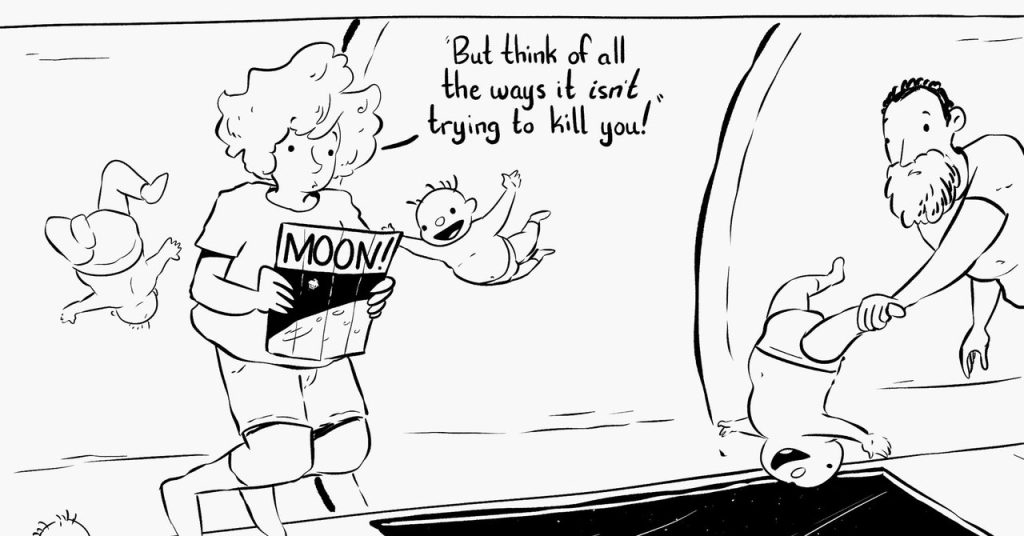The Future of Space Settlements: Debunking Misconceptions and Exploring Challenges
Introduction
In their book “Soonish,” Kelly and Zach Weinersmith explore the future of space settlements, shedding light on the potential challenges and debunking common misconceptions. With their expertise in science communication and cartooning, the duo offers a fresh perspective on the complexities of establishing a Martian civilization.
The Drawbacks of Mars Colonization
The Weinersmiths critique the ambitious claims made by companies like SpaceX and Blue Origin regarding the ease of colonizing Mars. They highlight the numerous obstacles, such as the toxic Martian soil laden with perchlorate, the devastating dust storms capable of stripping away valuable minerals, and the significant communication delays due to the planet’s distance from Earth.
“So that’s Mars. Most of the problems of the Moon, plus toxic dust storms and half-year flight each way. Why then do so many settlement advocates favor it as the ideal second home for humanity?”
Exploring Lunar Lava Tubes
As an alternative to Mars, the Weinersmiths propose exploring the moon’s lava tubes, which formed over 3 billion years ago when rivers of lava flowed beneath a solidified crust. These tubes offer protection from radiation and micrometeorites, making them a potentially viable option for future settlements.
The Ethics of Space Procreation
The authors express skepticism about the feasibility of mass space settlements in the near future, particularly due to the lack of research on the effects of space on childbirth and child development. They argue that any attempts to create large-scale settlements without sufficient scientific understanding would be unethical experimentation on children.

The Legal Landscape of Space Exploration
The Weinersmiths highlight the lack of comprehensive rules governing space exploration and resource utilization. The Outer Space Treaty of 1967, while prohibiting territorial claims, does not adequately address issues such as environmental protection and equitable resource sharing. The authors warn that without proper regulations, space powers could rush to secure the best resources, leading to potential conflicts.

The Impact of Space Launches on Earth
The authors also discuss the environmental impact of space launches on Earth, citing the recent controversy surrounding SpaceX’s Starship launch in Boca Chica, Texas. The explosion debris and the “rock tornado” caused by the launch have raised concerns, prompting the US Fish and Wildlife Service to conduct an environmental assessment.
“There are rules and they obviously have effects, despite pro-settlement people who want to ignore them or try to find loopholes or hope they’ll go away. But it matters so deeply for any kind of fantasy about Mars colonization.”
Conclusion
As humanity looks towards the stars, it is crucial to approach space colonization with a realistic understanding of the challenges and ethical considerations involved. The Weinersmiths’ book serves as a thought-provoking exploration of these issues, encouraging readers to think critically about the future of space settlements and the importance of responsible exploration.

4 Comments
Marble: Moon adventures drawn out, huh? Maybe it’s time to pack our bags and crayons!
Leah Rodriguez: Moon boots and Martian rovers in a comic strip? Talk about a stellar mashup!
Ah, blending science with cartoons, now that’s a cosmic duo for sparking some interstellar daydreams!
Who knew science and cartoons could lead us to dream of lunar cheese and Martian mysteries!